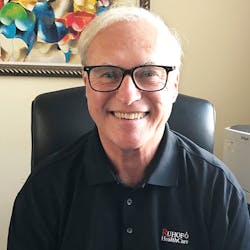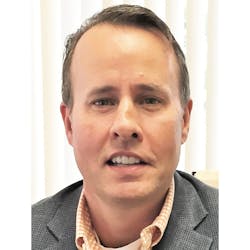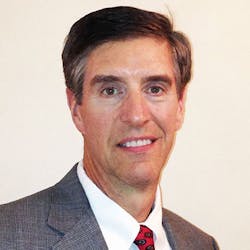The return of reusing SUDs may have a prequel in haste to reduce waste
As the discourse about reusing single-use devices continues to simmer even as healthcare professionals verbally spar over economic benefits, product durability, procedure quality and patient safety, a growing movement is emerging outside of healthcare that may render it all moot.
The movement stems from environmental calls for banning the use of single-use plastics to keep these products out of landfills after disposal.
Think of it as a preventive measure to prevent another preventive measure. After all, if device manufacturers don’t have access to single-use plastics to make SUDs, then healthcare organizations won’t have to worry about deciding whether to re-use SUDs.
Healthcare Purchasing News pondered whether this movement outside of healthcare may develop traction and transition to inside healthcare, asking relevant experts to share their thoughts.
“A far better approach would be to design in extended usefulness or life cycles for plastic devices (i.e., make reusability a design requirement) and a process for recycling and repurposing the remaining materials. The popular press and scientific literature are full of examples of the repurposing of basic materials. Why not make this a requirement for purchasing medical devices? Healthcare purchasers could influence sustainability beyond the doors of their institutions with such a requirement. The cost savings from ‘optimized’ reusable plastic devices would certainly pay for the adjustments in purchasing and use that would arise with this new approach.”
Richard Radford, CEO, Cenorin LLC
Ron Banach, Director, Clinical Training, Ruhof Healthcare
“As it relates to achieving a higher degree of environmental conscientiousness via the reduction of single-use devices, the key is to implement methods, processes and solutions that enable proper reprocessing of reusable devices. Tackling concerns around compliance, visual inspection, resource usage, and overall quality of reprocessed devices can help departments ensure patient safety, maintain compliance with IFUs [instructions for use], reduce unnecessary expenditures on resources, hopefully save some money by eliminating what are effectively consumables, and ultimately lessen their environmental impact. In an ideal world (with investments made to help departments achieve these goals), becoming more environmentally friendly should be a win-win-win for the hospital, the environment, and most importantly, the patient.”
Dan Gusanders, President, Pure Processing
“Simultaneously, Olympus has added carbon neutrality to its goals and is at work enabling a circular economy as an additional ESG (Environment, Social, Governance) initiative. This ESG goal will apply for all Olympus manufacturing and development sites to achieve the global target of Carbon neutrality by 2030.”
Melinda Benedict, Director, Infection Prevention and Control, Olympus Corporation of the Americas
“Like any other production system, if the staff is not properly trained, supervised and managed there will be failures in the process. In addition, ST91 calls for detailed event tracking. This is the area that I most often see failure to comply. Many facilities do not track and manage events as they should to improve the system. Often, staff are lax in reporting events, events are not reported with enough details and no one reviews the history to recognize trends. Events tell you where system failure is occurring. Event tracking and monitoring should be the most important task that SPD and Endoscopy managers have. Endoscopes that have design flaws that hamper effective cleaning or sterilization should be and are being corrected. Lastly, there is an incentive for manufactures to create repeat sales. Disposable products do this often at the expense of the environment.”
Gregg Agoston, Vice President, Business Development, SPD Transformation Services, SpecialtyCare





